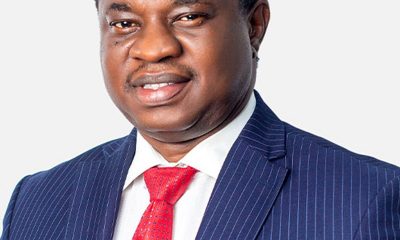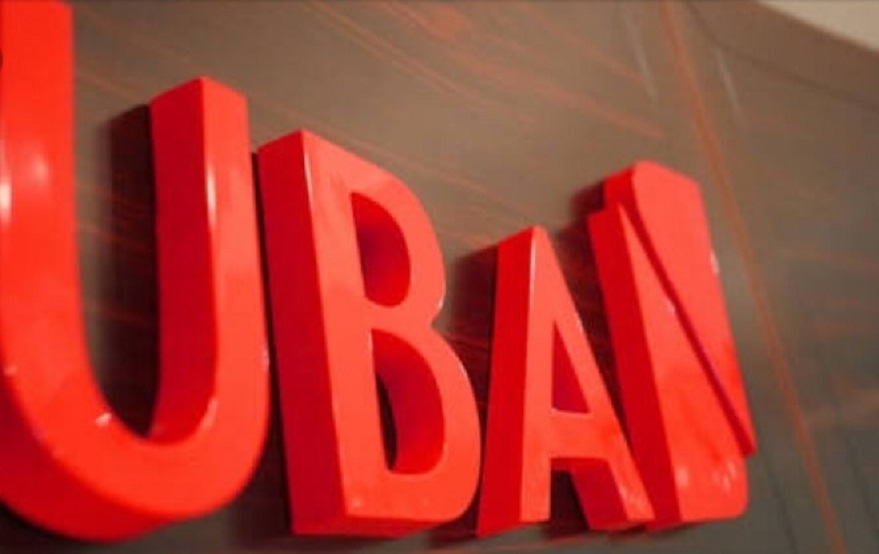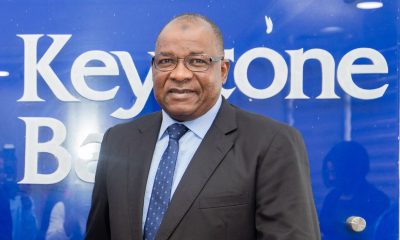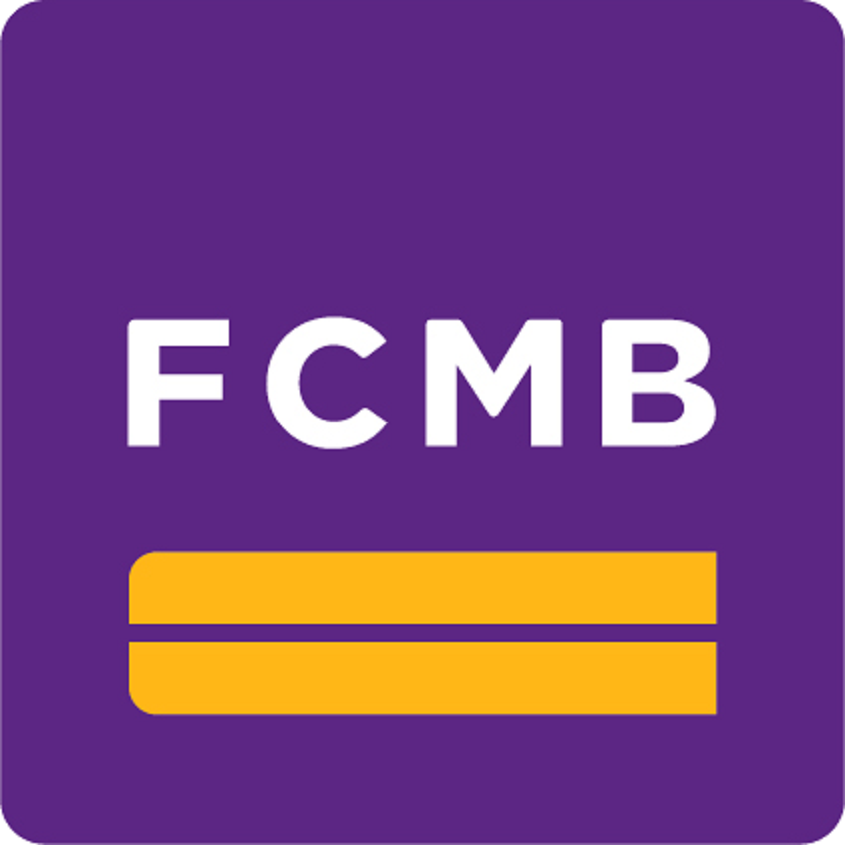Banking
Gauging Leaps and Bounds of UBA Plc, Lion of Africa’s Banking
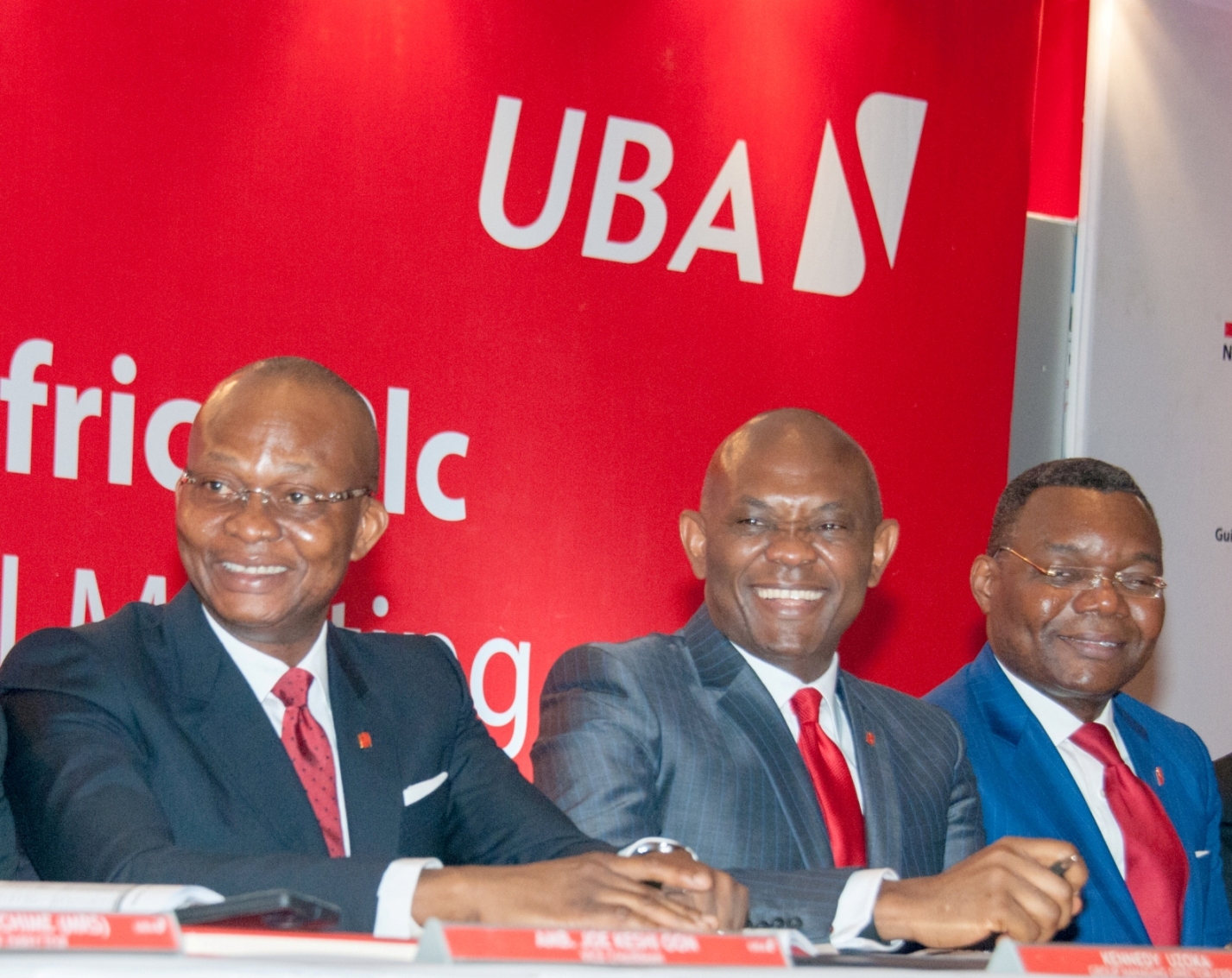
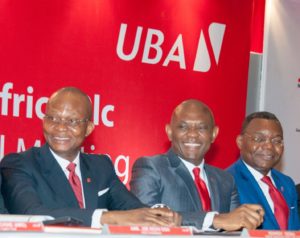
The United Bank of Africa has once again asserted its position as the lion of Nigeria’s banking. Most analysts agree on that, looking at the way it cut through on economic headwinds in the first quarter of 2017.
Quarterly reports, ratings, peer competitiveness, ready shareholders, and a motivated workforce are reasons the UBA will do better as leadership and market share go.
Ending 2016 with N384 billion in earnings, which was 22 percent increase from 2015’s figure, and a 32 percent rise in profit after tax to N91 billion, the bank ramped up N23 billion in the first quarter of 2017. That is 41 percent growth compared to the first quarter of 2016.
“Our performance in the first quarter of the year strengthens our optimism on economic and business recovery in Nigeria and many of our markets across Africa,” said Group Managing Director, Mr Kennedy Uzoka.
“More importantly, this result is evidence of efficiency gains in our pricing, balance sheet management and operations.”
While its Nigerian operations strengthen in terms of bottomlines, the overseas branches are equally faring well.
According to Mr Uzoka, the bank’s external operations contribute 35 percent of its earnings.
“We remained prudent in risk asset creation growing net loans by 2% year-to-date, as we have continued to monitor development in key sectors of the economy to take advantage of emerging bankable opportunities in due time,” he said while commenting on the quarterly report.
The UBA operates in 19 countries across Africa, and has branches in New York, London, and Paris. It serves millions customers in over 1000 business offices and centres where it carries out its retail, commercial and corporate banking, cross border payments and remittances, trade and finance, and other banking services.
Its flying start in 2017 further gets confirmation from Standard and Poor’s early in the month.
According to the international rating agency, the UBA is rated ‘B’ in long-term and ‘B’ short-term global scale counterparty credit ratings.
Analysts at Proshare said S&P’s ‘B’ rating is the highest rating currently assigned to any Nigeria-based financial institution.
“It thus reinforces the respectable quality and strength of UBA, the third largest Nigeria-based bank by total assets, deposits and profits,” the analysts said.
S&P also confirmed that UBA’s earnings will be resilient despite the economic slowdown in Nigeria. “We believe the bank’s capital and earnings under our risk adjusted capital and earnings framework will remain moderate over the next 12-18 months, with its capital adequacy ratio remaining well above minimum regulatory requirements,” the ratings agency noted.
The bank’s capital adequacy ratio was 19.7 percent at year-end 2016, way above the regulatory minimum of 15 percent. S&P believe it will remain stable over the next 12-18 months. Its showings in other indices are also superlative. Its credit losses to decline to about 1.0% in 2017-2018; its average liquidity ratio is doing well, 42 percent as of 2016; it has a stable funding ratio of 143 percent as of last December, thus becoming one of the lowest levels of loan leverage in Nigeria.
It has been a sustained rally for the bank. Which is a mark of its competitiveness in any situation. In the midst of decline Nigeria’s economy experienced last year, UBA still managed to tide over so well that it won five plaques in the Bank of The Year 2016 country awards in Gabon, Congo-Brazzaville, Senegal, Cameroon and Chad at the last annual Bankers Award in London.
Achievement trainers will make us such feat is possible when an organisation has a water-tight philosophy of goal getting. Well, the UBA has one: the three E’s—Enterprise, Excellence, and Execution.
But the GMD thinks that is not all. So he dedicated the awards to the customers whose loyalty, support and patronage, according to him, remain the fountain of the group’s growth and competitive edge in the African continent.
The UBA has over 14 million customers in Africa only. And they are well served by a synergy if technology and an army of highly motivated staff. It means a lot to the bank, especially the GMD, that its human resources remain in high spirits. As the 2016 annual report came out, and shareholders got over N19 billion in dividends, no fewer than 3000 staffers got promotion, too.
“Investment in our human capital is critical to our success,” said Mr Uzoka.
“It is a product of our ability to invest for the long term and create an institution that is built to last. It is the bedrock of our determination to be Africa’s leading customer focused bank.”
All thing being equal, the second quarter reports can only get better.
Source: National Daily
Banking
Public Offer: Sterling Holdco Allots 13.812 billion Shares to 18,276 Shareholders

By Aduragbemi Omiyale
Sterling Financial Holdings Company Plc has allotted shares from its public offer of 2025 to investors with valid applications.
The allotment follows the earlier receipt of final approval from the Central Bank of Nigeria (CBN) and the recent clearance by the Securities and Exchange Commission (SEC).
In September 2025, the financial institution offered for sale about 12,581,000,000 ordinary shares of 50 kobo each at N7.00 per share in public offer.
However, the exercise received wide participation from the investing public, with the company getting 18,280 applications for 16,839,524,401 ordinary shares valued at approximately N117.88 billion.
Following a thorough verification process, valid applications were received from 18,276 shareholders for a total of 13,812,239,000 ordinary shares, representing a subscription level of 109.79 per cent and reflecting sustained confidence in Sterling Holdco’s strategic direction, governance, and long-term growth prospects.
The firm approached the capital market for additional funds for the recapitalisation of its two flagship subsidiaries, Sterling Bank and The Alternative Bank.
The capital injection will support the commencement of full operations and contribute to the group’s revenue diversification objectives.
In line with the guidelines set out in the offer prospectus, Sterling Holdco confirmed that all valid applications will be allotted in full. Every investor who complied with the terms of the offer will receive all the shares for which they applied.
A very small number of applications were not processed or were partially rejected due to non-compliance with the offer terms, including duplicate payments and failure to meet the minimum subscription requirement of 1,000 units or its multiples, as stipulated in the offer documents.
The group ensures a seamless post-offer process, with refunds for excess or rejected applications, along with applicable interest, to be remitted via Real Time Gross Settlement or NIBSS Electronic Funds Transfer directly to the bank accounts detailed in the application forms.
Simultaneously, the electronic allotment of shares has be credited to successful shareholders’ accounts with the Central Securities Clearing System (CSCS) on February 17, and for applicants who do not currently have CSCS accounts, their allotted shares will be temporarily held in a registrar-managed pool account pending the submission of their completed account opening documentation to Pace Registrars Limited, after which the shares will be transferred to their personal CSCS accounts.
Banking
CBN Governor Seeks Coordinated Digital Payment Reforms

By Modupe Gbadeyanka
To drive inclusive growth, strengthen financial stability, and deepen global financial integration across developing economies, there must be coordinated reforms in digital cross-border payments.
This was the submission of the Governor of the Central Bank of Nigeria (CBN), Mr Olayemi Cardoso, at the G‑24 Technical Group Meetings in Abuja on Thursday, February 19, 2026.
According to him, high remittance costs, settlement delays, fragmented systems, and heavy compliance burdens still limit the participation of households and Micro, Small and Medium Enterprises (MSMEs) in global trade.
The central banker emphasised that efficient payment systems are essential for economic inclusion, highlighting that global remittance corridors still incur average costs above 6 per cent, with settlement delays of several days, excluding millions from modern economic activity.
Mr Cardoso cautioned that while digital payments present significant opportunities, they also carry risks such as currency substitution, weakened monetary transmission, increased FX volatility, capital-flow pressures, and regulatory fragmentation.
The G-24 TGM 2026, themed Mobilising finance for sustainable, inclusive, and job-rich transformation, convened global financial stakeholders to advance the modernisation of finance in support of emerging and developing economies.
The CBN chief reaffirmed Nigeria’s commitment to working with G-24 members, the IMF, the World Bank Group, and other partners to build a more inclusive, resilient, and development-oriented global financial architecture.
“We have strengthened our AML/CFT frameworks in line with FATF guidelines, requiring strict dual-screening of cross-border transactions to mitigate risks.
“To deepen regional integration, the CBN introduced simplified KYC/AML requirements for low-value cross-border transactions to encourage broader participation in PAPSS, easing processes for Nigerian SMEs and enabling faster intra-African trade payments.
“We have also embraced fintech innovation through our Regulatory Sandbox, allowing payment-focused fintechs to test secure, instant cross-border solutions under close CBN supervision,” he disclosed.

Banking
Unity Bank, Providus Bank Merger Awaits Final Court Approval

By Modupe Gbadeyanka
The merger and business combination between Unity Bank Plc and Providus Bank Limited remains firmly on course, a statement from one of the parties disclosed.
According to Unity Bank, there is no iota of truth in reports in certain sections of the media suggesting that the merger process had stalled, as the transaction remains firmly on track.
It was disclosed that the necessary regulatory steps have been completed, but only a few other steps to finalise the transaction, especially the final court sanction.
There had been speculations that both lenders may not meet the new minimum capital requirement of the Central Bank of Nigeria (CBN) before the March 31, 2026, deadline.
However, it was noted that the combined capital base of Unity Bank and Providus Bank exceeds N200 billion, which is the minimum requirement to retain a national banking licence under the CBN’s recapitalisation framework.
When completed, the Unity-Providus merger is expected to deliver a stronger, more competitive, and customer-centric financial institution — one with the scale, innovation, and reach to redefine the retail and SME banking landscape in Nigeria.
“The merger with Providus Bank significantly enhances our capital base, operational capacity, and strategic positioning.
“We are confident that the combined institution will be better equipped to support economic growth and deliver innovative financial solutions across Nigeria,” the chief executive of Unity Bank, Mr Ebenezer Kolawole, stated.
Recall that a few months ago, shareholders authorised the merger between the two entities at Court-Ordered Meetings. They also adopted the scheme of merger at their respective Extraordinary General Meetings (EGMs) in September 2025,
The central bank also backed the merger, with a pivotal financial accommodation to support the transaction. The merger also received a further boost with a “no objection” nod from the Securities and Exchange Commission (SEC).
The regulatory approvals form part of broader efforts to strengthen the resilience of Nigeria’s banking system, reinforce capital adequacy across the sector, and mitigate potential systemic risks.
The development positions the combined entity among the 21 banks that have satisfied the apex bank’s new capital threshold for national banking operations.
-

 Feature/OPED6 years ago
Feature/OPED6 years agoDavos was Different this year
-
Travel/Tourism10 years ago
Lagos Seals Western Lodge Hotel In Ikorodu
-

 Showbiz3 years ago
Showbiz3 years agoEstranged Lover Releases Videos of Empress Njamah Bathing
-

 Banking8 years ago
Banking8 years agoSort Codes of GTBank Branches in Nigeria
-

 Economy3 years ago
Economy3 years agoSubsidy Removal: CNG at N130 Per Litre Cheaper Than Petrol—IPMAN
-

 Banking3 years ago
Banking3 years agoSort Codes of UBA Branches in Nigeria
-

 Banking3 years ago
Banking3 years agoFirst Bank Announces Planned Downtime
-

 Sports3 years ago
Sports3 years agoHighest Paid Nigerian Footballer – How Much Do Nigerian Footballers Earn


